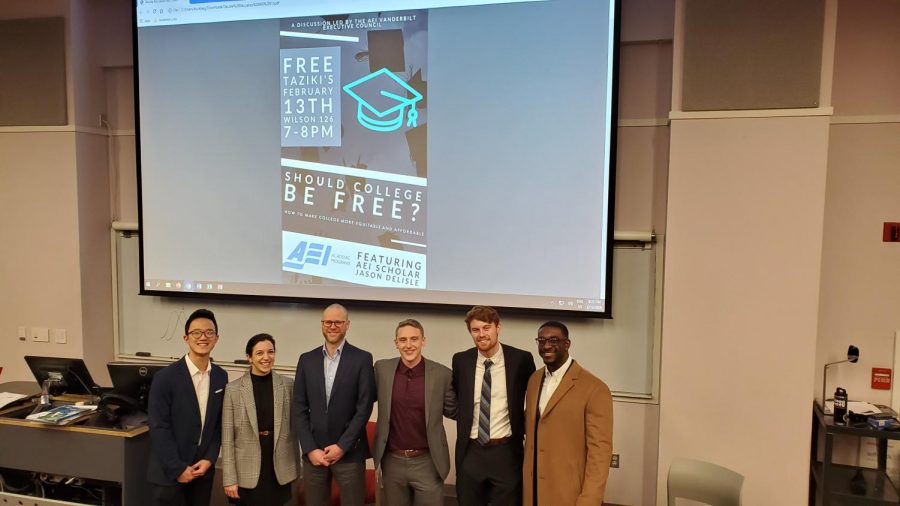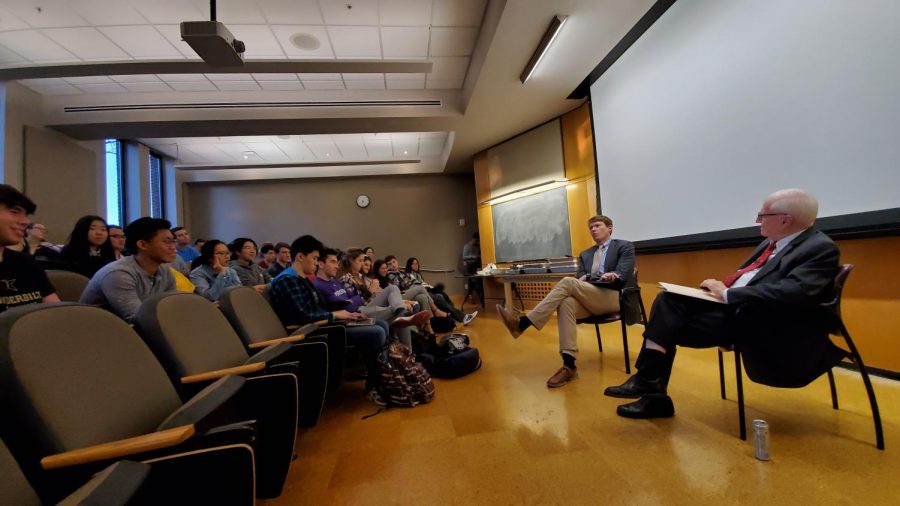Vanderbilt’s American Enterprise Institute (AEI) chapter sponsored a discussion Thursday, Feb. 13 on higher education equity and affordability with AEI Research Scholar Jason Delisle and Vanderbilt Economics professor Lesley Turner. The discussion was moderated by sophomore Jacob Schroeder, chair of the AEI Executive Council at Vanderbilt.
The discussion began by focusing on larger trends in higher education before offering potential remedies to the student loan crisis. Normally, Vanderbilt’s AEI executive council hosts foreign policy discussions, reflective of AEI’s presence as a national think tank with interests in a wide range of policy issues. However, Thursday night was different, as experts focused instead on education policy.
“With the campaigns going on right now, it’s something that a lot of people think is a great selling point, and we wanted to get into the nuts and bolts of it,” Schroeder said.
The discussion began with panelists laying out the fundamentals of higher education policy before delving into some of the specifics, with Turner first focusing on the effectiveness of money spent on education.
As the discussion transitioned into the student loan territory, Delisle said that the federal student loan program has been largely successful in the United States, with the vast majority of people repaying their loans. This provided an opportunity for Delisle to cover some of the Democratic primary candidates’ debt forgiveness plans.
“There’s an incredible arbitrariness to forgiving all student debt, no matter how you look at it,” Delisle said.
The discussion then shifted to Turner’s work on the effect that access to student loans has on educational progression and achievement.
Turner’s study focused on how a $4,000 loan would impact the educational achievement of students. The study had two groups of students from similar backgrounds: the first had access to loans while the second did not. It found that the loan allowed the student to take more classes and do better in those classes. For community college students—many of who work upwards of 40 hours a week—loans enabled students to devote more time to school, assuming the loan repayment options are feasible.
For both panelists, loan repayment remained one of the central issues surrounding access to higher education, with untenable loan repayment structures lying at the roots of the student loan crisis. Turner said the best option is income-based loan repayment systems, which ensure borrowers never pay more than 10 to 15 percent of their discretionary income and forgive debt after 20 years.
“A lot of the problems we have around the student loan crisis and really bad outcomes could be solved by making these repayment set of options better,” Turner said.
Delisle said that loan repayment structures in countries such as the UK and Australia employ income-contingent loans, which are paid as a surcharge on taxes. However, he said these countries also have a tax infrastructure that is compatible with these loans.
“I’ve spent a lot of time trying to figure out if you could do that here, and you could, it would just be messy,” Delisle said






